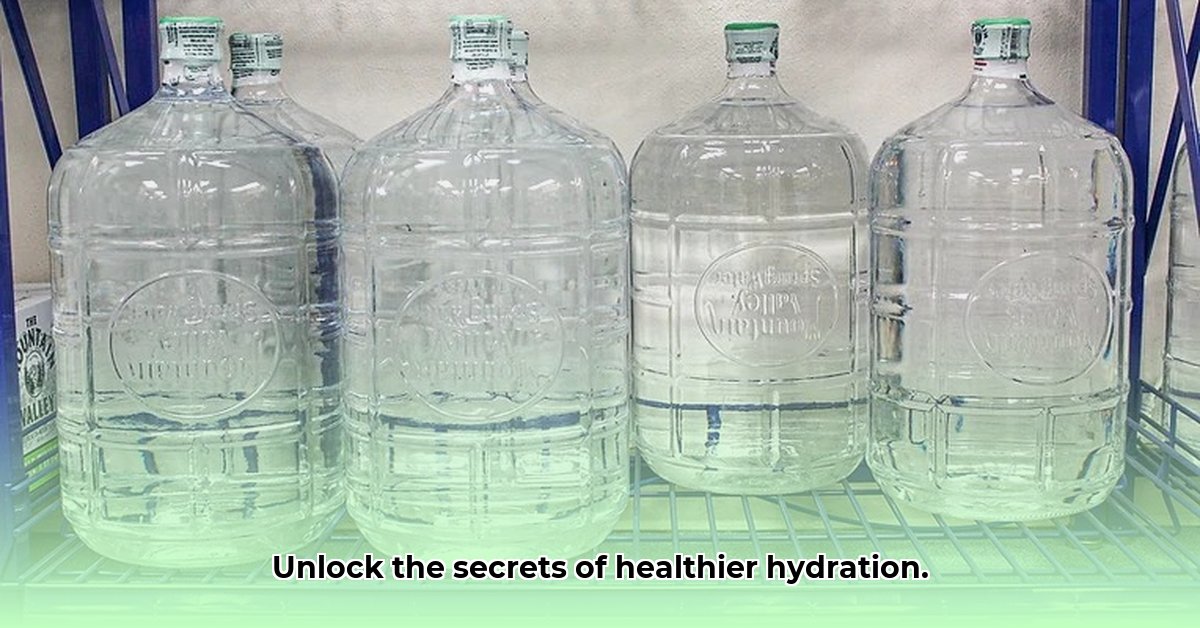
Staying hydrated is crucial for overall well-being, but not all waters are created equal. Mountain Valley Spring Water (MVS), sourced from the Ouachita Mountains, offers a unique mineral profile that may contribute to enhanced health. This article explores the potential benefits of MVS, examines the scientific evidence, and clarifies what we currently know and what still remains to be discovered.
What Makes Mountain Valley Spring Water Unique?
MVS undergoes a natural filtration process as it travels through the earth's layers, resulting in a distinct mineral composition and a slightly alkaline pH. This natural enrichment distinguishes it from many other bottled waters.
A Natural Mineral Boost: The Key Ingredients
MVS contains essential minerals like calcium (important for strong bones and teeth), magnesium (vital for energy production and muscle function), and potassium (crucial for fluid balance and nerve function). These minerals work synergistically to support various bodily processes. But how much is actually in a bottle? The mineral content can vary slightly depending on the source and batch. Always check the label for the most accurate information for your specific bottle.
The slightly alkaline pH (typically between 7.3 and 7.7) is another noteworthy characteristic. While research is still ongoing, some studies suggest that alkaline water could help neutralize stomach acid, potentially alleviating symptoms of acid reflux or indigestion. However, more research, specifically focused on MVS, is needed to confirm these benefits.
How Does MVS Compare to Other Water Sources?
To put MVS in perspective, let's compare its mineral content to other bottled waters and common dietary sources. Remember that mineral levels fluctuate; this data provides a general comparison.
| Mineral | Mountain Valley Spring Water (Approximate mg/L) | Other Bottled Waters (Range mg/L) | Common Dietary Sources |
|---|---|---|---|
| Calcium | 20-30 | 1-50 | Dairy products, leafy green vegetables, fortified foods |
| Magnesium | 10-20 | 1-20 | Nuts, seeds, whole grains, legumes |
| Potassium | 1-5 | 0-10 | Bananas, potatoes, tomatoes, leafy green vegetables |
While MVS offers a relatively higher concentration of these essential minerals compared to many bottled waters, a balanced diet remains the cornerstone of sufficient mineral intake. MVS can be viewed as a beneficial supplement, not a replacement.
Scientific Evidence and Limitations
While the potential benefits of MVS are promising, it's crucial to acknowledge the limitations of current scientific research. While the benefits of calcium, magnesium and potassium are well-established, large-scale clinical trials directly linking MVS consumption to specific health improvements are lacking. More research is needed to draw definitive conclusions. This doesn't negate the potential benefits; it simply emphasizes the need for further investigation.
Hydration: The Foundation of Well-being
Remember, MVS is not a miracle cure. Its potential benefits are most effective within a healthy lifestyle encompassing proper hydration, balanced nutrition, and regular exercise. Consider MVS a refreshing and potentially mineral-rich addition to your daily fluid intake.
Conclusion: A Balanced Perspective
Mountain Valley Spring Water offers a potentially beneficial way to stay hydrated, potentially boosting your daily mineral intake. However, further research is essential to fully understand its long-term effects on health. Consult a healthcare professional for personalized dietary advice.
Frequently Asked Questions (FAQ)
What is the mineral content of MVS? The mineral content varies slightly from batch to batch, but typically includes significant levels of calcium, magnesium, and potassium. Always check your bottle's label for precise details.
Where does MVS come from? MVS is sourced from natural springs deep within the Ouachita Mountains.
What does MVS taste like? Many describe its taste as clean, crisp, and refreshing.